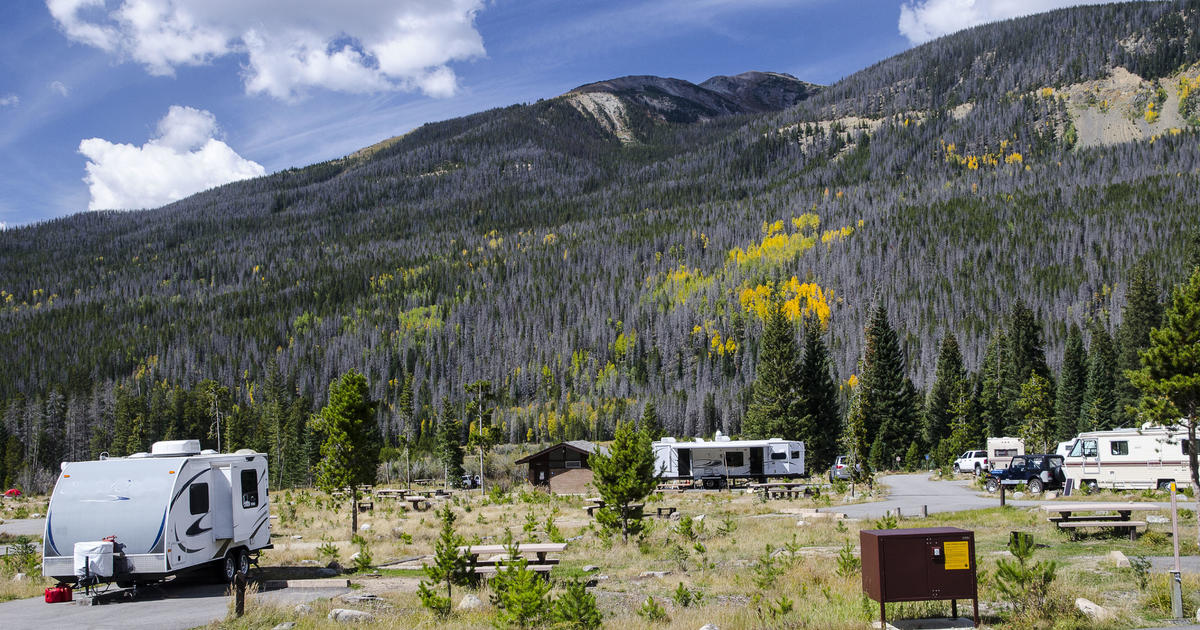Ute Farm & Ranch Wins $92,000 USDA Grant
TOWAOC, Colo. (AP) — The bright green alfalfa fields appear like a surreal oasis tucked into the rolling hills of desert shrubbery that extend south as far as the eye can see.
Vaughn Cook climbs aboard a sprayer at the Ute Farm and Ranch. The brown field behind would normally be green with a new crop of corn, but because of the drought, will sit idle with no irrigation this year.
Here, 12 miles southwest of Towaoc, the Ute Mountain Ute Farm & Ranch Enterprise cultivates 7,600 acres of farmland thanks to a ribbon of water flowing south from McPhee Reservoir near Dolores. But this year, the Farm & Ranch is expecting only a quarter of the water it normally receives from the reservoir due to a combination of lower than normal snowpack numbers and sparse reserves left over from last year.
The story is the same for all those who depend on McPhee for irrigation water.
The current water reality is one of the reasons Farm & Ranch is exploring ways to diversify operations beyond the notably thirsty alfalfa, which now grows in the majority of its fields.
The enterprise's current focus is on creating value-added products from yellow and white corn.
"Our emphasis has been on production agriculture to date, and now we want to vertically integrate," said Paul Evans, Farm & Ranch's general manager. "We want to go up, because we don't have any more water. The only way we can generate more revenue is to value-add."
The enterprise is in the midst of building a cleaning and bagging operation for its corn products and, thanks to newly-announced help from the U.S. Department of Agriculture, it is examining the market potential for producing milled corn, as well.
USDA awarded Farm & Ranch $92,000 to pursue various markets for corn products grown, cleaned and eventually milled on the Ute Mountain Ute reservation.
Such value-added products have longer shelf lives, can be sold for a higher profit margin and require processing, which creates jobs on the reservation.
Drought is a common occurrence in the southwestern corner of the state where the Farm & Ranch's operations are located. The region has been wracked by exceptional or extreme drought in four of the past 13 summers, according to the U.S. Drought Monitor. The monitor's latest report from late April shows the area is already experiencing severe drought.
Farm & Ranch normally receives almost 25,000 acre-feet of allotted irrigation water each year, but current forecasts show the enterprise will receive only 5,852 acre-feet from McPhee Reservoir with an option to lease about 1,200 more.
Considering the drastic reduction, operation managers decided to plant less than half the acreage they normally do and planted only alfalfa this year, Evans said.
The operation normally remains in the black, but this year Evans expects it to lose money.
Expanding into value-added products will allow the operation to generate a more consistent revenue despite the ups and downs of water and weather, he said. Corn from a good harvest year can be stored for the future, allowing processing operations to proceed even if the next year's crop is meager. Cleaning and bagging operations this year, for example, will draw on 55,000 bushels of white corn stored from last year's harvest.
Evans estimated that adding bagging and cleaning operations to the enterprise's business plan will create three new jobs, and his rough calculations show higher profit margins for the cleaned and bagged white corn — about $2.80 per 50 pound bag versus about $2.67 for the same amount of uncleaned bulk product.
A niche product like bagged cornmeal could net the tribe even more, Evans said.
The USDA grant will help Farm & Ranch develop a network of potential customers, send samples, develop a logo and make site visits.
The Ute Mountain Ute tribe was one of three tribes in the nation to receive this round of the USDA grant, which helps both tribal and non-tribal value-added producers. The idea is to help rural areas generate more profits locally, said Tedd Buelow, the Native American coordinator with the USDA's Rural Development agency.
Such grants are especially valuable in areas vulnerable to drought, Sen. Michael Bennet said in a news release after the grant was announced.
"On the heels of a devastating drought season, it is necessary to provide our agricultural producers tools to improve their businesses and increase their sustainability, the release said.
Farm & Ranch received $98,000 through the same grant in 2009 to explore the feasibility of turning yellow corn into cornmeal, and this year's grant is allowing them to take the process further, Evans said.
"The idea is to see what can we do with value-added and then when we find that, we'll look at putting more money into it," he said. "We want to start slow."
The enterprise's work sets an example for rural America and Indian Country, said Butch Blazer, U.S. Department of Agriculture deputy undersecretary for natural resources and environment.
"It sets the bar as to what can be accomplished by tribes," Blazer said.
- By EMERY COWAN, Cortez Journal
(© Copyright 2013 The Associated Press. All Rights Reserved. This material may not be published, broadcast, rewritten or redistributed.)



